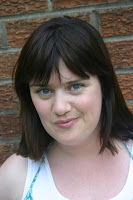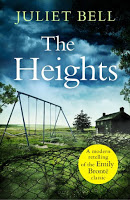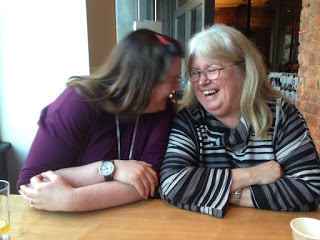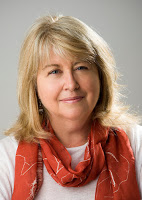Juliet Bell: Two Authors For The Price Of One
8 January 2018
Today we welcome Juliet Bell to the blog to celebrate the publication of her first
novel, The Heights. Juliet Bell is the collaborative pen name of RNA members Janet Gover and Alison May. Juliet was born at an RNA conference, with a chance remark about heroes who are far from heroic. She was raised on pizza and wine during many long working lunches, and finished her first novel over cloud storage and skype in 2017. Juliet shares Janet and Alison’s preoccupation with misunderstood classic fiction, and stories that explore the darker side of relationships. You can follow Juliet on Twitter @JulietBellBooks or find out more on her website.
Two hundred years since Emily Brontë’s birth comes The Heights: a modern re-telling of Wuthering Heights set in 1980s Yorkshire.
A grim discovery brings DCI Lockwood to Gimmerton’s Heights Estate – a bleak patch of Yorkshire he thought he’d left behind for good. There, he must do the unthinkable, and ask questions about the notorious Earnshaw family. Decades may have passed since Maggie closed the pits and the Earnshaws ran riot – but old wounds remain raw. And, against his better judgement, DCI Lockwood is soon drawn into a story.A story of an untameable boy, terrible rage, and two families ripped apart. A story of passion, obsession, and dark acts of revenge. And of beautiful Cathy Earnshaw – who now lies buried under cold white marble in the shadow of the moors.
So we have two guests for the price of one today. With that in mind, we suggested that Janet and Alison ask each other some questions about their writing. Over to you Janet…
 |
| Photo credit: Julie Cohen |
JANET: Writing a collaboration meant we had to plan what we were doing in some detail. We became plotters which is not the way you normally write. What was the hardest part about that and what was easier than you expected?
JANET: After we decided to adapt Wuthering Heights, we both reread the original. Was
there anything when you reread it that you had forgotten or that surprised you?
ALISON: So much! I’ve never thought of Wuthering Heights as a romantic novel, and I’ve certainly never seen Heathcliff as a romantic hero – although I know some readers do. But even beyond that I was stunned by how bleak a lot of the story is, and how self-involved even the ‘nicer’ characters are.
I spent much of the reread wanting to shake pretty much everyone on the page, which sounds like it should
probably mean that I didn’t like the book. That’s not the case at all. I love Wuthering Heights – it’s big and ambitious and all-consuming, but it’s also unrelenting, and I think I’d forgotten that unrelenting darkness.
JANET: We use Skype and online storage when we write together, because we live in different parts of the country and are both a bit geeky. What piece of technology do you love most – and hate most?
ALISON: I’m not sure if it really counts as a ‘piece of technology’ but it’s the same answer for love and hate – social media! Twitter, facebook, Instagram – I have a love-hate relationship with them all. I love being connected to friends and family so easily. Being a writer involves a lot – A LOT – of time spent on your own inside your own imagination. It’s really easy to get very isolated, very quickly, and chatting on Twitter and Facebook is a massive help with that.
But it’s also a huge timesuck, and it pushes crises from around the world into your eyeballs in real-time in a way that I really don’t think the human psyche is evolved to deal with, and it invites you to compare yourself with everyone else’s (carefully edited) social media perfect lives.
And every now and then I think I ought to go social media cold turkey, but then I get a message from a mate I’ve not seen for months, or read a really interesting Twitter thread about Harry Potter, or feel in desperate need of a picture of an otter, and thoughts of stepping away are instantly forgotten again.
ALISON: So now, it’s my turn to ask the questions! So Janet, how did you get started writing fiction? I know you were a journalist – what led you into making up, rather than reporting, stories?
JANET: It was actually the other way around. I always wanted to make up stories. I think I wrote my first ‘book’ when I was about 9 years old. I typed it on my parent’s typewriter, and made a cover for it with a drawing of a pony and the title in fancy font. My parents were practical people and realized that making a living as an author isn’t guaranteed or easy. They encouraged me to find another way of fulfilling my need to write while paying my bills. Journalism did that. After some years, I moved out of being an on-the-road reporter into management, so I wasn’t actually writing any more. That was when I seriously started writing fiction. It’s much harder and much more fun that writing facts, but in its own way, much more rewarding.
ALISON: Why Wuthering Heights? It was you that very first suggested the adaptation – what is it about that book that captured your imagination?
JANET: I grew up in a fairly isolated part of Australia. The snow storms and rain and mists of the Yorkshire moors were very different from my hot dry world, but had much of the same feeling of wildness. I love wild places, wild animals and I guess by extension the wild souls of Cathy and Heathcliff. Wuthering Heights touches on so many themes, love and hate, isolation and prejudice, dysfunctional families and abuse and… well the list goes on. Any one of these themes is thought provoking, but finding so much in one book is amazing. Every time I read it, something different captures my imagination. There are scenes and phrases from the book that have never left me.
ALISON: The setting in The Heights is as much a part of the story as the characters – they’re all deeply associated to the place where they live. I think of you as a bit of a citizen of the world – you’ve lived in Australia, the UK and New York and worked all over the world. Where do you think of as home?
JANET: I’ve called a lot of places home. We moved every few years when I was small, and Australia certainly has a lot of space to move around in. I’ve spent so much time in hotels in about 50 different countries in my day job, I even say I’m going home when I head back to the hotel at the end of the day. I guess home isn’t really a physical place in my head. Home is where I can relax and be myself, be with people I care about and there is often a cat involved.
At the moment, home is west London. I love living in London. It is an amazing city. A few weeks every year I go home to Australia where I wake to the sound of kookaburras laughing in the gum trees and often find a kangaroo near the house (yes – seriously). It probably sounds corny, but I guess “home” is all the places that have made me the person I am.
Thank you Janet and Alison. The Heights is available now in ebook from Amazon, iTunes, Kobo, and Google Play.
Janet Gover grew up in a small Queensland country town, surrounded by books. After studying at Queensland University she became a television journalist, first in Australia, then in Asia and Europe. During her career Janet saw and did a lot of unusual things. She has met one Pope, a few movie stars and is on first name terms with a dolphin. She now works with television technology and travels extensively with her job, including some unusual destinations such as Iraq, Kazakhstan and the Kingdom of Lesotho. While living in Hong Kong, she met an Englishman, whom she subsequently married and she now lives in West London.
Her first fiction was published in 2002 – a short story inspired by a holiday in Wales. Her first novel was published in 2009. She now has ten published novels, one of which won the RNA RoNA Award for an epic romantic novel in 2017. You can find out more about Janet on her website, or on facebook or by following @janet_gover on Twitter.
 Alison May is a novelist and short story writer. She lives in Worcestershire with her husband, no kids and no pets. There were goldfish once. That ended badly.
Alison May is a novelist and short story writer. She lives in Worcestershire with her husband, no kids and no pets. There were goldfish once. That ended badly.







